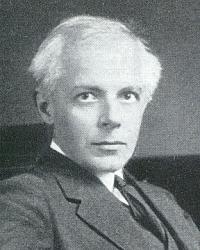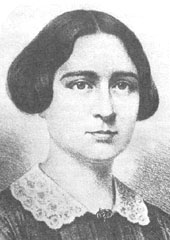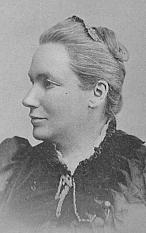Abbot, Francis Ellingwood
Francis Ellingwood Abbot (November 6, 1836-October 23, 1903), a founder of the Free Religious Association and first editor of the radical journal, the Index, developed
Francis Ellingwood Abbot (November 6, 1836-October 23, 1903), a founder of the Free Religious Association and first editor of the radical journal, the Index, developed
John Abernethy (October 19, 1680-December 1, 1740), called “the father of non-subscription”, was a prominent Irish Presbyterian minister who led many ministers and congregations out
William Adam (November 1, 1796-February 19, 1881), born in Dunfermline, Fife, Scotland, began his ministry as a Baptist missionary in India. His labors in India
The journalist, historian, novelist, Henry Brooks Adams ( February 16, 1838-March 27, 1918) was the son of Civil War diplomat Charles Francis Adams and Abigail
Abigail Adams (November 11, 1744-October 28, 1818) advocated and modeled an expanded role for women in public affairs during the formative days of the United
Charles Francis Adams Jr. (May 27, 1835-May 20, 1915) was a lawyer, writer, railroad regulator, arbitrator, journalist, railroad president, and soldier. Reared a Unitarian, his
Charles Francis Adams, Sr. (August 18, 1807-November 21, 1886), a lifelong Unitarian, was an antislavery politician who later opposed radical reconstruction of the South. As
Hannah Adams (October 2, 1755-December 15, 1831), an early American historian and pioneer in the field of comparative religion, was also the first American author
Hannah Adams (Oct. 2, 1755-Dec. 15, 1831) born in Medfield MA, she was the first American, man or woman, known to attempt to support herself
James Luther Adams (November 12, 1901-July 26, 1994) was a Unitarian parish minister, social activist, journal editor, distinguished scholar, translator and editor of major German
John Adams (October 30, 1735-July 4, 1826), first vice-president and second president of the United States, was a leader of the American Revolution, diplomat, and
John Quincy Adams (July 11, 1767-February 23, 1848) spent most of his youth and adult life in public service to the United States, as senator,
Peter Charadon Brooks Adams (June 24, 1848-February 14,1927) was a lawyer, historian, and writer, who served as an informal adviser to President Theodore Roosevelt. Although
Margot Susanna Adler (April 16, 1946-July 28, 2014) was a speaker, lecturer, writer, and public radio reporter. A complex woman with wide-ranging interests, she was
Elizabeth Cabot Cary Agassiz (December 5, 1822-June 27, 1907) was an early advocate for the education of women. However, she was conservative about women’s rights.
Thomas Aikenhead (baptised March 28, 1676-January 8, 1697), a young Edinburgh medical student who allegedly railed against the Holy Trinity, was judicially hanged for his
John Aikin (January 15, 1747-December 7, 1822), M.D., epitomized the dissenting spirit that advocated freedom of religious expression in mid-eighteenth and early nineteenth century England.
Amos Bronson Alcott (November 29, 1799-March 4, 1888), educator, philosopher, utopian, and visionary, ran the progressive Temple School in Boston, founded the Fruitlands community in
Louisa May Alcott (November 29, 1832-March 6, 1888), best known as the author of Little Women, was an advocate of abolition, women’s rights, and temperance. Her
Horatio Alger, Jr. (January 13, 1832-July 18, 1899), briefly a Unitarian minister, was a popular nineteenth-century author of juvenile fiction. His “rags to riches” stories
Nathan Appleton (October 6, 1779-July 14, 1861) was a merchant, manufacturer, financier, politician and philanthropist, best known as a pioneer in establishing textile manufacturing in
Thomas Gold Appleton (March 31, 1812-April 17, 1884) wrote that in his day, “forms of luxury and self-indulgence displace the severe austerities of our fathers;
Robert Aspland (January 13, 1782-December 30, 1845), father of organised Unitarianism in Great Britain, was the most widely known Unitarian minister of his day. He
Robert Brook Aspland (January 19, 1805-June 21, 1869), son of Robert Aspland, succeeded his father’s as editor of the Christian Reformer and as secretary of the British
Isaac Morgan Atwood (March 24, 1838-October 26, 1917) was a Universalist minister, journalist, educator, and denominational leader. During the four decades spanning the end of
John Murray Atwood (September 25, 1869-November 4, 1951), a Universalist minister, educator, and denominational leader, served, for 37 years, as dean of the Canton Theological
Johannes Abraham Christoffel Fagginger Auer (August 6, 1882-March 3, 1964) was a Unitarian minister, author, professor of Church History and of the Philosophy of Religion
Edwin Burdette Backus (December 27, 1888-July 7, 1955), a Unitarian minister and proponent of humanism, had a popular radio ministry. He was a notable supporter
William Stevens Balch (April 13, 1806-December 25, 1887), a celebrated Universalist preacher, was also an evangelist, a denominational organizer, journalist, politician, teacher, and historian. Proud
The Ballou family of New England produced some of the most well-known and distinguished American Universalists, including Hosea Ballou, the leading theologian and evangelist of
Adin Ballou (April 23, 1803-August 5, 1890), founder of the utopian community at Hopedale, Massachusetts and a leading 19th century exponent of pacifism, was during
Hosea Ballou (April 30, 1771-June 7, 1852) was the most influential of the preachers in the second generation of the Universalist movement. His book, A
Hosea Ballou 2d (October 18, 1796-May 27, 1861), Universalist minister, scholar, educator, and journalist, was the grandnephew of the theologian and denominational leader Hosea Ballou.
William Sullivan Barnes (June 16, 1841-April 2, 1912), an outstanding preacher, was for thirty years minister of the Church of the Messiah (Unitarian) in Montreal.
Phineas Taylor Barnum (July 5, 1810-April 7, 1891), known as P. T. Barnum, a prominent Universalist, the most influential American showman of the nineteenth century,
Samuel Barrett (August 16, 1795-June 24, 1866) was an active and much respected Unitarian minister in the early days of the organized American Unitarian movement.

Béla Bartók (March 25, 1881-September 26, 1945), the greatest Hungarian composer, was one of the most significant musicians of the twentieth century. He shared with
Clara Barton (December 25, 1821-April 12, 1912) was both famous and honored in her lifetime—and has a well-earned place in American history—as the angel of
Seth Curtis Beach (August 8, 1837-January 30, 1932) was a Unitarian minister, author, poet and hymnist. He was born in western New York State to
John Relly Beard (August 4, 1800-November 22, 1876), British educational reformer and minister, was a militant exponent and populariser of mid-Victorian Unitarianism. His most enduring
Henry Whitney Bellows (June 11, 1814-January 30, 1882) was minister of the First Congregational Church of New York City (now the Unitarian Church of All
William Bentley (June 22, 1759 -December 29, 1819), the minister of the East Church in Salem, Massachusetts, was one of the first New England ministers
Henry Bergh (August 29, 1811-March 12, 1888) was the founder of the American Society for the Prevention of Cruelty to Animals (ASPCA) and was instrumental
Giovanni Giorgio Biandrata (or Blandrata) (1516-May 5, 1588), physician and counsel to the courts of Eastern Europe, brought the ideas of Michael Servetus and the
Mary Charlotte Ward Granniss Webster Billings (July 11, 1824-March 2, 1904) was a Universalist author, activist, and hymn writer. The wife of two Universalist ministers,
Leon Milton Birkhead (April 28, 1885-December 1, 1954), a controversial Methodist and Unitarian minister, achieved national prominence in the 1940s as director of the Friends
Herman Bisbee (October 29, 1833-July 6, 1879) is best known as the only American Universalist minister to have been found guilty of heresy. After losing

Antoinette Louisa Brown Blackwell (May 20, 1825-November 5, 1921), a women’s rights activist and social reformer, was the first American woman to be ordained as
Elizabeth Blackwell (February 23, 1821-May 31, 1910) was the first woman to earn a degree from medical school in the United States and the first
Harriot Stanton Blatch (January 20, 1856-November 20, 1940) was a leader in the woman suffrage movement, a writer and an advocate for labor reform. She
Sir Adrian Cedric Boult (April 8, 1889-February 22, 1983) was one of the foremost British conductors of his time. Well-known for his advocacy and performance
Nathaniel Bowditch (March 26, 1773-16 March 16, 1838), a self-taught astronomer, navigator, and business executive, was one of America’s first scientists. His enduring reputation is
Georgene Esther Bowen (February 13, 1898-September 1984) was a Universalist missionary and social worker. She worked at the Blackmer Home for underprivileged girls in Japan
Sir John Bowring (October 17, 1792-November 23, 1872), a man of amazing energy and a polymath, was a linguist, political economist, reformer, hymnist, writer and
John Boyden (May 14, 1809-September 28, 1869), a Universalist minister, politician, and social reformer, was a disciple of Hosea Balou and the longtime pastor of
George Bradburn (March 4, 1806-July 26, 1880), antislavery politician, was a journalist, lecturer, and Unitarian minister. He was a friend and co-worker in the abolitionist
Franklin Bradley (February 2, 1831 – May 3, 1909) was a Non-Subscribing Presbyterian minister in Northern Ireland and England and the first minister to Unitarians
Raymond Bennett Bragg (October 10, 1902-February 15, 1979), a Unitarian minister and civic leader, played a key role in the making of the Humanist Manifesto
Bruce Wallace Brotherston (August 12, 1877-April 17, 1947) was a Universalist minister, author, and educator. After 16 years in the ministry he went on to
Olympia Brown (January 5, 1835-October 23, 1926) dedicated her life to opening doors for women. Among only a handful of women to graduate from college,
Orestes Augustus Brownson (Sept. 16, 1803-April 17, 1876) as a maverick Universalist and Unitarian minister, then an independently-minded journalist, essayist, and critic, was a wide-ranging
Florence Buck (July 19, 1860-October 12, 1925) was a Unitarian minister at a time when women ministers were uncommon and a leader in the development
Celia Burleigh (September 18, 1826-July 25, 1875) was ordained at Brooklyn, Connecticut, on October 5, 1871, the first woman to enter Unitarian ministry. Had this
Robert Burns (January 25, 1759-July 21, 1796) is the national poet of Scotland. Since they were first published, his poetry and songs have never been
Harold Hitz Burton (June 22, 1888-October 28, 1964) was a Unitarian layman, lawyer, and politician who served as Moderator of the American Unitarian Association (AUA).
Richard Clarke Cabot (May 21, 1868-May 7, 1939) was a physician, philosopher, educator, and social work pioneer. He was a meticulous scientific observer and record
Matthew Caffyn (bap. October 26, 1628, bur. June 1714), an important early British General Baptist preacher and evangelist, was an influential antitrinitarian. Matthew was the
John Caldwell Calhoun (March 18, 1782-March 31, 1850) was a United States representative, senator, secretary of war, secretary of state, and vice president. A political
Lon Ray Call (October 6, 1894-October 7, 1985) was a Unitarian minister and denomination official best known for his evangelism. Instrumental in the development of
Angus de Mille Cameron (June 9, 1913-November 23, 1996) was one of a small group of Canadian ministers whose introduction into Canada in the 1940s
Ida Maud Cannon (June 29, 1877-July 8, 1960) was a pioneer in the hospital social service movement which began in Boston in the first decade
If your browser can read Czech characters, click here. Norbert Fabian Capek (June 3, 1870-October 12, 1942), a Czechoslovak minister of extraordinary ability, after spending
If your browser cannot read Czech characters, click here. Norbert Fabián Čapek (1870-1942), a Czechoslovak minister of extraordinary ability, after spending a few years in
Paul Nathaniel Carnes (February 1, 1921-March 17, 1979), a longtime minister at the Unitarian Universalist Church of Buffalo, New York and a proponent of desegregation
Samuel Carter (May 15, 1805-January 31, 1878) was a lawyer who shaped the legal codification and business practices of the early railways in England. For
Sir John Carter (before December 20, 1741-May 18, 1808), a Unitarian merchant, was on nine occasions Mayor of Portsmouth, the chief maritime port for the
Alice Cary (April 26, 1820-February 12, 1871) and Phoebe Cary (September 4, 1824-July 31, 1871) were in their day well known and loved for their
Ernest Cassara (June 5, 1925-April 10, 2015) was a Unitarian and a Universalist minister, a scholar of American Universalism, and a professor of history. He
Sir (Joseph) Austen Chamberlain (October 16, 1863-March 16, 1937), British politician and statesman, was the son of Joseph Chamberlain and the older brother of Neville
Joseph Chamberlain (July 8, 1836-July 2, 1914), a British industrialist, reformer, and statesman, was a key cabinet minister in Liberal and Conservative governments. In his
Field Marshal Sir Neville Bowles Chamberlain (January 10, 1820-February 3, 1902), a significant figure in Britain’s wars on the Indian subcontinent, was the only person
Seth Chandler (December 2, 1806-October 4, 1889) was a Universalist minister, one of the leaders of the Restorationist Controversy within the denomination, minister of the First Parish
George Leonard Chaney (December 24, 1836-April 19, 1922) was an established New England Unitarian minister whose major contribution to Unitarianism was his work in the
Henry Trevett Channing (January 17, 1760-August 27, 1840) was the uncle and mentor of the leading exponent of American Unitarian Christianity, William Ellery Channing. He
Walter Channing (April 15, 1786-July 20, 1876) was born, in Newport, Rhode Island, into a prestigious family. He earned his own reputation as Boston’s leading
William Ellery Channing (April 7, 1780-October 2, 1842), minister of the Federal Street Church in Boston, Massachusetts, 1803-42, was a spokesman during the Unitarian controversy

Augusta Jane Chapin (July 16, 1836-June 30, 1905), Universalist minister and educator, was one of the earliest women to be ordained in ministry. She was
Edwin Hubbell Chapin (December 29, 1814-December 26, 1880), Universalist minister, author, lecturer, and social reformer, was one of the most popular speakers in America from
Maria Weston Chapman (July 25, 1806-July 12, 1885) was described by Lydia Maria Child as “One of the most remarkable women of the age.” Chapman and three
Lydia Maria Child (February 11, 1802-Oct. 20, 1880) was a novelist, editor, journalist and scholar who produced a body of work remarkable for its brilliance,
Theodore Clapp (March 29, 1792-May 17, 1866), an early Unitarian preacher in the southern United States who established an outpost of liberal religion in New
Peter Humphries Clark (March 29, 1829-June 21, 1925), an associate of Frederick Douglass, was one of Ohio’s most effective black abolitionist writers and speakers. The
James Freeman Clarke (April 8, 1810-June 8, 1888), an influential Unitarian minister, social reformer, popular author, scholar, and institutionalist, founded and ministered to a new
Frances Power Cobbe (December 4, 1822-April 5, 1904) was one of the most influential figures in the British Unitarian movement of her day. Although she
Alfred Storer Cole (October 9, 1893-January 5, 1977) was a minister, scholar, writer, librarian of the Universalist Historical Society and, for a quarter century, teacher
Samuel Taylor Coleridge (October 21, 1772-July 25, 1834) was a poet, philosopher, and romantic visionary, an inescapable presence in early 19th-century England. John Stuart Mill
Orello Cone (November 16, 1835-June 23, 1905), a Universalist minister and scholar, was a professor at the Theological School of St. Lawrence University and president
Moncure Daniel Conway (March 17, 1832-November 15, 1907) was a clergyman, abolitionist, scholar, and author, best known for his outspoken opposition to slavery in the
Maria Cook (1779-December 21, 1835) was the first Universalist woman preacher in America. A traveling evangelist during the early 1810s, she preached before many audiences
George Willis Cooke (April 23, 1848-April 30, 1923), born in Comstock, Michigan, was a Unitarian minister, writer, editor, and lecturer best known now for his